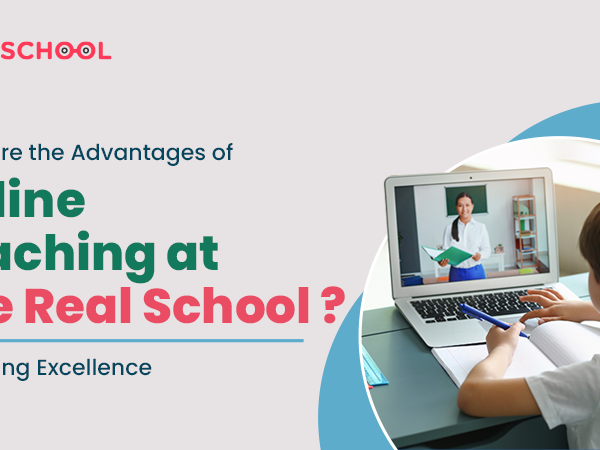Excessive smartphone use has already begun to have an impact on some of the kids. According to a Pew Research Center survey, just over half of American youngsters think they pay too much time on their phones. This trend has already started to trickle down to younger children, for better or worse.
More than half of children under the age of 11 now own a smartphone, according to a Common Sense Media study covered by NPR. As a result, researchers and parents are beginning to analyze the negative and positive effects of smartphones on children’s development.
Learning courses for your kids! Get free trial here
Also Read: Mental Ability Questions for Class 8: Let’s Have Some Fun and Do Some General Mental Ability
The Role of Cell Phone in the Development of Children Education
In the past, cell phones were thought to be a distraction in the classroom. While this is still true, educators are gradually realising that phones can be used as learning tools. Phones have evolved into influential teaching aids over time, and when used correctly, they can enhance learning developments.
Usage Phones in Kids Learning
Cell phones can be used in the classroom in a variety of ways. The most obvious method is to conduct research using cell phones. Phones can be used to connect to the internet and gather data from reputable sources for use in reports.
Available in Classrooms
The educational system is a dynamic and ever-changing landscape. There will always be a way for technology to enter the classroom!
Consider how the role of calculators in schools evolved from being considered as an unnecessary crutch to evolving a beneficial and necessary tool in mathematics!
We’ve seen presentations evolve from noisy, bulky overhead slide projectors to engaging interactive whiteboards and live video projectors in recent years!
Also Read: Funny and Easy Tongue Twisters in English: Interesting Way to Learn and Enhance Your Skills
Environment Friendly
Cloud computing, an emerging technology, has sparked a new trend known as “going paperless.” Many businesses and individuals around the world are using the cloud to transition from paper to electronic documents (with very little infrastructure or maintenance), and they can access them from anywhere using their personal devices.
The paperless initiative has helped businesses save time, money, and the environment all at the same time. Schools should follow suit, given the amount of paper waste generated by a typical classroom for assignments, handouts, worksheets, and exams.
Knowledge about Digital Devices
Almost all children nowadays are raised in a world dominated by computers and mobile devices. In fact, most children receive their first smartphone at the age of ten.
Innovative schools should begin teaching these “digital natives” how to use technology responsibly at a young age, so they can develop computer skills that will help them succeed in today’s and future job markets.
Safer When You Carry a Phone
Students and parents alike will feel safer if they bring their cell phones to school. This is because there are times when they must communicate with one another due to an emergency.
Contacting parents through the school system can take time, so having the student contact them directly is one of the best options. This is especially useful in the event of a medical emergency. There are also times when parents need to contact their children for a critical reason or simply to check in on them to see why they are late.
Makes it Cheaper
How do people save money by using cell phones? Let’s just say that if a kid has access to a phone, she can effortlessly download academic materials without having to spend a lot of money. Unlike purchasing books or printing modules, accessing these materials is instantaneous and inexpensive, which is advantageous for students who are still in high school.
Smartphones have the potential to replace notebooks and pens. Students can even use it to take notes, making it extremely useful and practical.
Smart Phone for Children’s Development
Before the COVID-19 pandemic, any parent who tried to limit their child’s screen time quickly saw those limits shattered as children were forced to spend hours learning in front of their devices.
Little ones appear to have been just as engrossed in technology as their caregivers even before distance learning and extra idle time.
Is that appropriate for their growth?
Also Read: Tongue Twisters in English for Kids: Let’s Know Easy and Popular Tongue Twisters for Kids
Babies and Toddlers
Beyond the colourful pictures and brightness of the screen, children are unable to process the images they see at a young age.
This is also true when a baby sees himself or herself on a smartphone. While it’s a great way for a long-distance grandparent to say hello, your baby is unlikely to process what they see right away, even if it’s an image of themselves.
Elementary Aged
Because of the link between screen time and sedentary behaviour, the World Health Organization has emphasised the importance of limiting screen time.
We all know how critical adequate sleep, physical activity, and playtime are for children’s development (and anyone, really). Excessive screen time can disrupt sleep patterns and prevent young children from getting up to play or move.
Keeping a smartphone away from your elementary school child, on the other hand, can be extremely difficult.
Teens
As children grow older, they gain a better understanding of themselves, how others perceive them, and how they fit into the social structures in which they live.
However, when teenagers place too much emphasis on social media or consume too many “wrong” messages online, their sense of self can be skewed or warped.
Pros of Phones
It is common that good always comes with bad. We have been living in an age where technology is drastically developing on a good scale, but at the same time children should not forget that it can impact them negatively. Kids attending school and then college have to develop digital education as well as research skills, and in this age it is greatly possible with technology.
Self-Sufficiency
Parents and teachers can help children learn to self-regulate the amount of time they spend on their phones by providing early guidance and support. This lesson will assist them in developing and implementing healthy self-awareness and self-reflection practises that will better prepare them for adolescence and, ultimately, young adulthood.
Digital Literacy
Children who use smartphones are effectively preparing for future technological engagement. Because some schools provide high-speed internet access to students, they can begin to develop a better understanding of how to use their smartphones to navigate online resources.
Also Read: English Learning Apps for Kids: Learn English with the Best and Easy to Use Apps
Access to Emergency Services
Students with smartphone access can find help more quickly in the unfortunate event of an emergency. In terms of the effects of smartphones on child development, the constant ability to contact emergency services can provide a sense of security to both children and parents, allowing them to grow.
Provides Access to Information
Certainly, some students struggle to keep up with their top classmates during recitations due to a lack of subject knowledge. If students are allowed to bring their smartphones to school, they will have easier access to more information and will be more engaged in class discussions.
One of the most significant advantages of technology is the ability to look up information in a matter of seconds. Inside the classroom, there will be more interesting debates and exchanges of opinions because everyone has something to say.
Cell Phones as Memory Aids
Because students have so many quizzes and tests to prepare for in school, it is advantageous for them to review on their phones. If they are permitted to use their smartphones to take notes or even take pictures of lessons that are too difficult to copy by hand, they can review them wherever they are.
This is especially useful in science classes. They can use their phone to document any laboratory work they did or any creatures, plants, or chemical reactions they came across that they may never see again.
Flexibility and Convenience
Smartphones eliminate the need to carry around heavy assignments, textbooks, notes, and other items in a backpack!
All of these things can now be accessed at any time and from any location using a small, portable device. Furthermore, calendar and planner apps enable students to develop time management skills and keep track of their studies.
Cons of Mobile Phones
In recent years, the negative effects of smartphone use on children have gotten a lot of attention. There has been growing concern in journalism, academia, and other popular forms of media about how children have increased their access to smartphone technology.
Scholars from all over the world have been studying the behavioural consequences of smartphone addiction in children.
Also Read: Coding Apps for Kids: Why Coding is Important for Kids?
Learning courses for your kids! Get free trial here
Content that Kids are not Allowed to See
Apart from the numerous significant benefits of smartphones for children, there are some drawbacks to purchasing a smartphone for your child. One of the major drawbacks of getting your child a smartphone is that there is a lot of adult content on the internet, which your child could access.
As a result, your child’s mental development may be hampered. Despite the fact that there are programmes that aim to block those sites, nothing is perfect, and your child may find ways to circumvent such software.
Losing the Phone
Children are frequently in a hurry and do not take proper care of their belongings.
This holds true for smartphones as well. As a result, many children will lose their smartphones over time, which may irritate you greatly, especially if you purchased an expensive smartphone for your child.
As a result, if your child is prone to misplacing things, you may want to avoid purchasing a smartphone for him or opt for a low-cost alternative.
In some countries, your child could be robbed and lose his or her smartphone as a result of the robbery. Although this is not common in most countries, there are still areas of our planet that are dangerous, and if you live in one of those areas, you may not want to buy your child a smartphone to protect them from such attacks.
Addiction
Not only for adults but also for children, smartphone addiction has become a serious problem. In fact, many kids spend so much time on their smartphones that they don’t want to do anything else.
This can cause serious issues because your child’s healthy development requires that he or she engage in a variety of activities rather than staring at his or her smartphone all day.
As a result, if you want to buy your child a smartphone, make sure you limit the amount of time he or she is allowed to spend with it in order to avoid smartphone addiction.
Also Read: Best Learning & Education Apps for Kids: Acknowledge the Top Applications for Better Learning!
Using Phone During the Class
Another disadvantage of smartphones for children is that they may be used in class while in class. In fact, many children may prefer to play a game on their smartphones rather than attend school.
As a result, those children may not learn as much in school, and their lack of education may lead to a variety of other issues later in life.
Children Lose Concentration
Children who own a smartphone, on the whole, have a serious lack of attention in various aspects of their lives. While this may seem harmless if your child sits on the couch and plays with his or her smartphone, it could result in dangerous traffic situations.
If your child no longer pays attention while crossing the street, there’s a good chance he or she will be involved in a traffic accident sooner or later, which would not have happened if your child didn’t have a smartphone. As a result, make certain to teach your kid about the threats of smartphone use in order to protect him or her from these hardships.
Low Score
Many parents also report that their children’s grades have deteriorated as a result of purchasing a smartphone. This is frequently due to children’s excessive use of their smartphones for entertainment rather than for educational purposes.
As a result, getting your child a smartphone can have negative consequences for their education if the smartphone is not used for educational purposes and is instead used to play video games all day.
Conclusion
As we are moving towards digitalization, it is important for the parents to make kids aware and teach them the difference between real and virtual, because these two are slowly coinciding.
Hopefully, you found this information useful, and if you have any questions or concerns, please let us know in the comments section below, and we’ll be happy to assist you.
Also Read: Online Quiz for Kids: Enhance Their Knowledge of the World around Them







